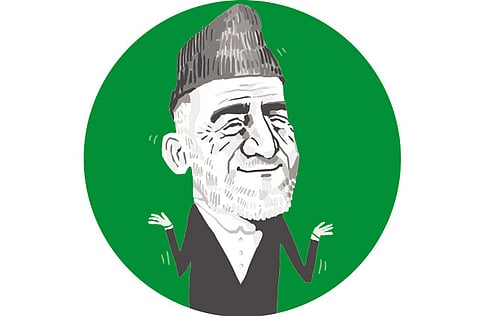US has no alternative but to back Karzai
Obama knows that the Afghan government is corrupt and unpopular, but he has to work with it nonetheless

Before she arrived in the Afghan capital Kabul to participate in the ninth Afghanistan international aid conference on July 20, US Secretary of State Hillary Clinton spoke of "refining" the goals of the US war in that country.
The goal under president George W. Bush was to destroy Al Qaida and prevent it from ever operating again. However, the war dragged on from 2001 until 2010, and President Barack Obama's administration is trying to withdraw gracefully from Afghanistan.
Indeed, the crucial issue in the November Congressional elections will be Afghanistan. After the midterm election, Obama will do the third major review of his Afghanistan policy.
Obama wants to reverse what he calls the "Taliban's momentum", implicit in the intensity of attacks on western troops, and prevent it from overthrowing the Karzai government.
The president has been making remarks that are not without contradictions. He pledged another 30,000 troops to support the Karzai government but, in the same breath, also announced that US troops would start to return home by July 2011. By setting a timetable, he has unnerved not only the Karzai government but also its allies, while bolstering the morale of the Taliban militants.
America's involvement in Afghanistan is costing it an estimated $100 billion a year. In these cash-strapped times, it cannot afford to fight a war on a piece of real estate that thwarted attempts by imperial Britain and, later, the Soviet Union, to conquer it.
The Karzai government needs to rein in the widespread corruption that is turning the Afghan people against both the government and the western alliance. America has to perfect its "winning hearts and minds" strategy, which is being pursued by General David Petraeus, Obama's new military leader on the ground. The Afghan people are tired, angry and frustrated after three decades of instability, unrest and shortages, and long for stability and order, even if it means living under the tyrannical and much-despised Taliban.
Dr Abdullah Abdullah, the former Afghan foreign minister and a Karzai rival in Afghanistan's elections, recently told me in an interview in New York that America needs to ensure that aid serves the basic needs of the people, and is not pocketed by corrupt politicians and officials enjoying the protection of the Karzai government.
Obama must carefully weigh whether he can just walk away from Afghanistan, beating a hasty retreat, which would mean a strategic setback for the US fight against terrorism, and almost certainly sound the death-knell for the Karzai government, which would fall in the same quick manner to the Taliban as South Vietnam fell to the Viet Cong after the US withdrew under president Richard Nixon in 1975.
Regional effect
The US is also keen to see that Pakistan, the "world's most dangerous place", as it is portrayed by international security experts, is not rocked by instability because of concern over its nuclear arsenal.
Pakistan should give up its India fixation because the real threat to that country comes not from India on its western borders but from the Pakistani Taliban.
Americans should give Karzai more latitude but, in return, demand strict accountability from his government for its actions. America needs to accept Karzai's input — he has been complaining that nearly 77 per cent of the $29 billion in international aid spent in Afghanistan was disbursed on projects with little or no input from his government — but it should also take a carrot-and-stick approach. Karzai has urged international donors — which are wary of his government's corruption and bloated bureaucracy — to channel 50 per cent of their foreign assistance through the government within two years, and align 80 per cent of their projects with priorities that have been identified by Afghans.
Karzai reaffirmed his commitment to take charge of Afghanistan's policing and security by 2014.
A hasty US withdrawal would spell disaster for Karzai's government. However, waiting until 2014 could harm Obama's chances of winning a second presidential term. Obama needs to worry about both the Congressional election this year and the plans of some Democrats to run for president in 2012.
In all probability, Obama will put the withdrawal on the back burner once the November election is over. Nato Secretary General Anders Fogh Rasmussen has already declared that the alliance would never allow the Taliban to overthrow the Afghan government, and would withdraw only when the Afghans were able to maintain security on their own.
Manik Mehta is a commentator on Asian affairs.


